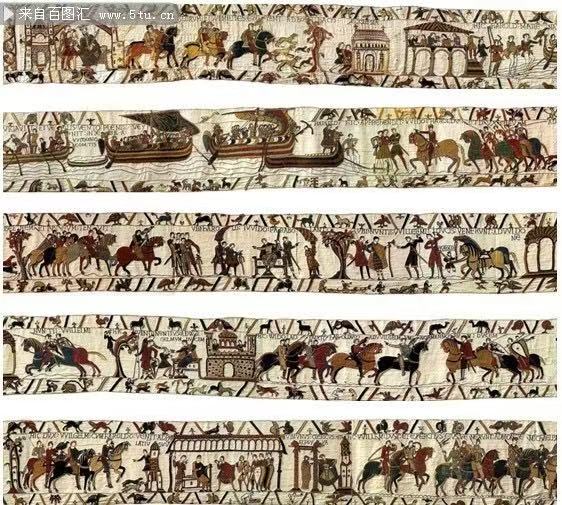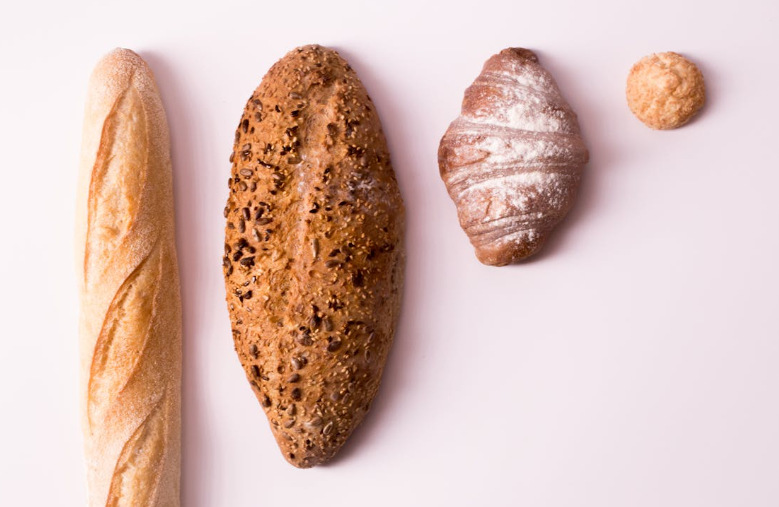法语如何成为全球装腔指南 ?看英语里的法语借词就知道了 ...





▲点击进入 相应板块
"French loanwords
in English"
PART ONE
△
点击播放音频
KEY WORDS
图片均来源于网络 | 侵删
加小助手VX【luluxjg2】领取全文逐字稿


The History of French Influence on English


The Norman Conquest (1066)
♦The Norman Conquest, where William the Conqueror, a French-speaking king, invaded England.
♦As a result, French became the language of the court, law, and the church, while English was spoken by the common people.
♦Many French words related to government, law, and culture were absorbed into English during this period.

Why French Words Stayed
♦French words were often used by the upper class and those in power, while English remained the language of the people.
♦Over time, these French words were adopted into English and are still in use today.
♦Most English people speak schoolboy French learnt at school.


Common French Loanwords in English


Food and Drink:
♦Restaurant – A place to eat.
♦Croissant – A buttery, flaky pastry.
♦Baguette – A long, narrow loaf of French bread.
♦Cuisine – A style of cooking.
♦Mousse – A light, fluffy dessert made with chocolate or fruit.

节目文稿全记录
#850

Hello again欢迎来到Happy Hour英文小酒馆。关注公众号璐璐的英文小酒馆,加入我们的酒馆社群,邂逅更精彩更广阔的世界
Hi, everyone, and welcome back to Happy Hour. Hi, 安澜.
Hi, Lulu, hi, everyone.
You remember we did quite a few episodes on loanwords in English.
Yes.
我们做了好几期英语里的外来语. We talked about German loanwords, Latin, Italian, even Japanese.
Yeah.
But as some of our audience pointed out, we are ignoring the obvious, I know you don't wanna talk about them as an English person, but it's right there. It's the elephant in the room, that's French loanwords.
Yes. We have to talk about the French loanwords and the influence of French on English.
Whether you want to admit it or not, there are so many French words in English, right?
There are. The thing is that England and France pretty much have a love-hate relationship. We've been neighbors for a very long time and neighbors can have good times and also some very, very bad times as well.
Yeah, but as a language learner, you really do need to learn the French loanwords in English.
Yes.
By the way, what is the percentage of French loanwords in English?
Around 30 to 45% of words in English come from French.
Wow. That's 1/3~1/2 of your vocabulary.
Yes. Now the thing, I always remember that someone once said to me about English and I think this is true, English is French words with German grammar. I think that is pretty much accurate. I think that is pretty much what English is.
Yeah. Actually I don't know, German grammar is simplified, German grammar.
It’s simplified German grammar. Yeah.
Yeah, but back to French, I always remember, because I also learned French or try to learn French when I was in university. And I since realized that a lot of the English words, for example,
if you have multiple words have the same... with the same meaning, then the simpler one is always English, but the more difficult or more formal one usually comes from French, for example, “begin” is English, “begin” or “start” is English. But “commence” is French and like commencer, right?
And then “to end” or “to finish” is English but “terminate”, terminer is French.
It is French, yeah.
So I guess in this episode we can get to the bottom of that. Maybe talk about the history of why this happened and also share with our audience some of the very, very common French loanwords in English, a lot of these you probably don't realize they were originally from French.
So, first of all, it all starts 1066. I think we talked about this when we talked about the history of English, William the Conqueror, a French-speaking King, invaded England, and he won.
That’s the Norman Conquest. 就是诺曼人的征服.
As a result, French became the language of the court, law and the church, while English was spoken by...
Peasants?
Pretty much peasants, like me.
So that's why the everyday words were more English. But the more advanced words, they're all French.
That's right. And why they stayed because they were often used by the upper class and those in power, whereas English or old English remained the language of the people. So to get ahead, you had to speak French or at least you had to understand French.
Otherwise you just simply will stay in the class that you were born into.
Pretty much.
But these people, the ruling class, the upper class, did they speak English at all?
Eventually. They started to speak English because they started to marry... they started marrying English women and so the languages sort of came together really.
Blended.
They blended, but it was only around the 14th century when English itself became the language of government.
I see. By the way, when we were talking about English and French, you're saying that English people had to learn French, nowadays they don't have to learn French, but many of them still do or try to do.
Well, yeah. Most people in England speak what is known as schoolboy French.
Is it a bit like 哑巴英语.
Kinda, so it's enough to know kind of like how to ask for a coffee or where the toilets are, it’s very, very basic.
Most people do understand a bit of French. And mainly that is also because the words are very, very similar. But you have to be very careful though, because there are lots of words in French and lots of words in English that come from the same root but have very different meanings.
This is one thing you gotta really watch out for.
Okay, you might think after hearing us saying 35, 45% of English words are originally from French, you might think, does that mean once I mastered English, it will be very, very easy to learn French or vice versa?
Not necessarily. First of all, the pronunciation is very different. I learned this the hard way, if your English pronunciation is not stable yet, if you haven't really mastered a language or reached a high enough level, don't try another language because then these two languages would fight.
And then you would pronounce in very weird ways, because... and you're speaking English, but you're trying to do the French sound. You know what I'm talking about those of you who are trying to be bilingual or trilingual or multilingual.
Yes, exactly. So for example, demand in English comes from the French word demander. But demander means ask.
Yeah, this is another, remember we were just talking about the pronunciation and this is what they call false friends. 就是假朋友. Meaning these two words they look the same and you would assume as this is the loanwords in another language, so they will naturally mean the same.
They are not. Similar things happen in Chinese and Japanese, because obviously Japanese, there's a lot of loanwords from kanji(漢字/かんじ), from Chinese characters, in Japanese, but the meaning has completely changed.
One, famous one is tegami(手紙/てがみ)which is letter, it writes the written form of it is 手纸. But in Japanese that means letters like you mail to other people, but in Chinese it means toilet paper. So it's completely different. Same as in French and English.
So for example, preservative is usually a jam, préservatif means condom in French.
That one, I really do not understand. I think it's the same in Italian as well. So if you see preservative in or something similar in French, don't think of them as jam.
No, not at all.
Alright. So I think we've laid down the ground rules, or we've laid down the basics. Let's go in to the actual words. We start with food and drink because that's what French are known for.
Well, exactly. So the idea restaurant is a French word.
Really? Didn't English people even have restaurants?
Most of the first restaurants were opened and they were inspired by restaurants in France.
Okay. I remember in Italian, it's also ristorante. It's also from Latin, I guess, the roots.
Probably it’s shared root, yeah. Also of course, croissant , croissant.
It's unfair, if you talk about French pastry, then of course they are French, of course they'll be named in French.
If you go online, you see croissant, you see videos about croissant. There's always videos about French people trying to correct English speakers like you're not speaking, you're not saying it properly.
Yes. But that's how we say in English, croissant.
That's actually not, a lot of people would say croissants, but it's not, that T is silent.
Yeah, generally.
牛角包叫做croissant.
And of course, baguette.

Baguette, 法棍.
So we call it a baguette.
Because that's the French word.
Exactly. And you have mousse like a dessert that's made with chocolate or fruit.
慕斯, 我们就叫慕斯.

And ultimately, cuisine. The style of cooking comes from the French word cuisine.
饮食文化的那个词叫cuisine. Cuisine just sounds so much more highbrow than food.
Yeah. That's because cuisine is the style of cooking. So a lot of people get confused. They think that cuisine and food are interchangeable, they're not.
But you do hear French cuisine, and Chinese cuisine.
Yeah, it's the way in which people in France or people in China cook and prepare food.
相当于中国饮食文化, 法国饮食文化, cuisine.
Not to mention pretty much anything relating to food, if it's higher-end, then is French. If you think about filet (菲力牛排). Right? And you think about sauté (快炒). These are obviously even French sounding words.
Fillet 源自古法语 filet(“网/细线”)
They are, because they are French words, particularly when you’re going to fine dining, then most of it is in French. And for many years, menus were written in French.
I have to say, even nowadays, if you're going to higher-end French restaurant, even in London, completely in French. Because they just assume if you can afford to eat there, you know French.
Yes.

排版长图:Jer.ry
文稿校对:Dongnia & Jenny
图片来源:均来源于网络 | 侵删

星标 “璐璐的英文小酒馆”
听见更精彩的故事,遇见更广阔的世界







▲点击以上图片,Get世界精选好物













